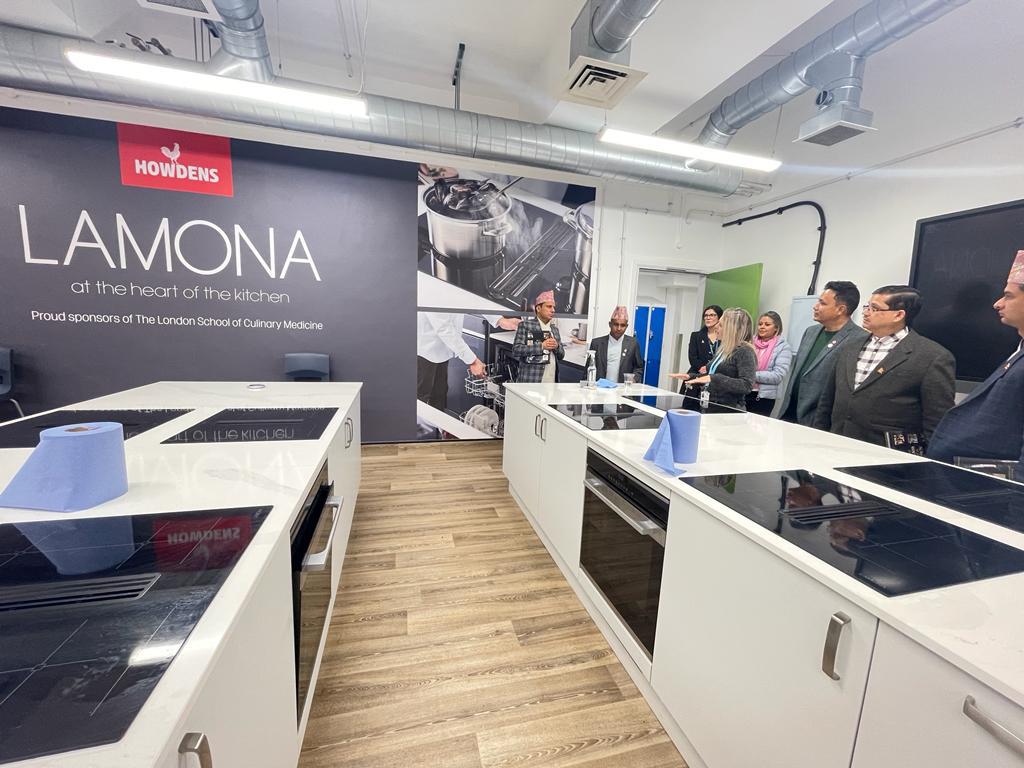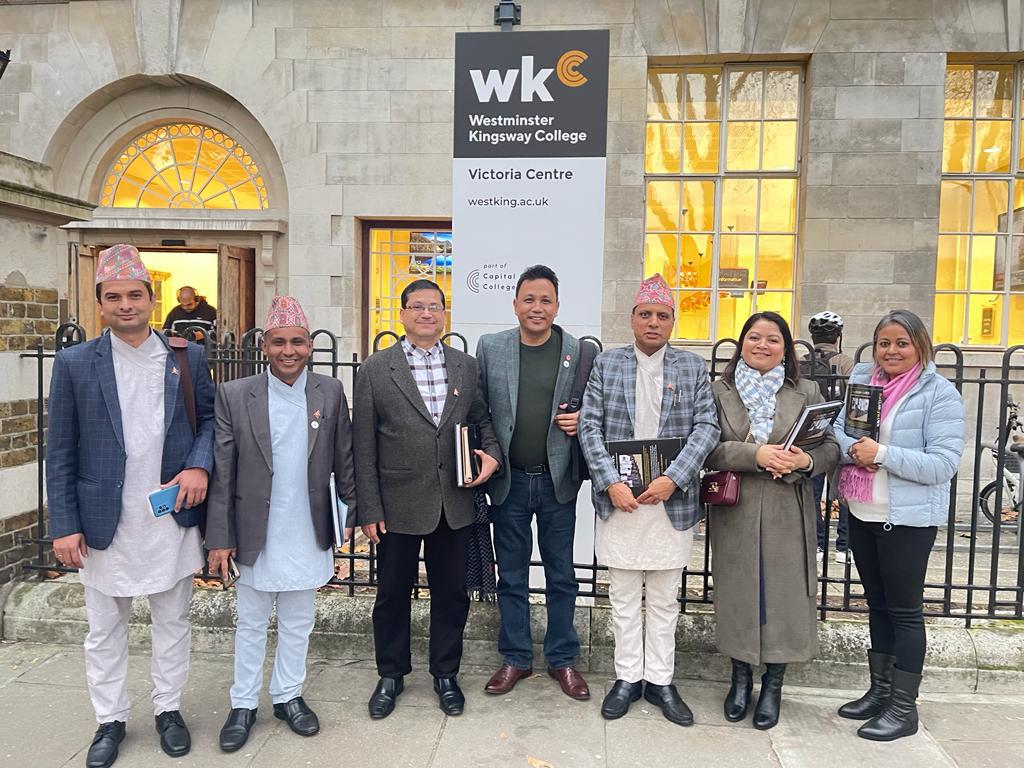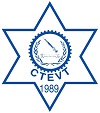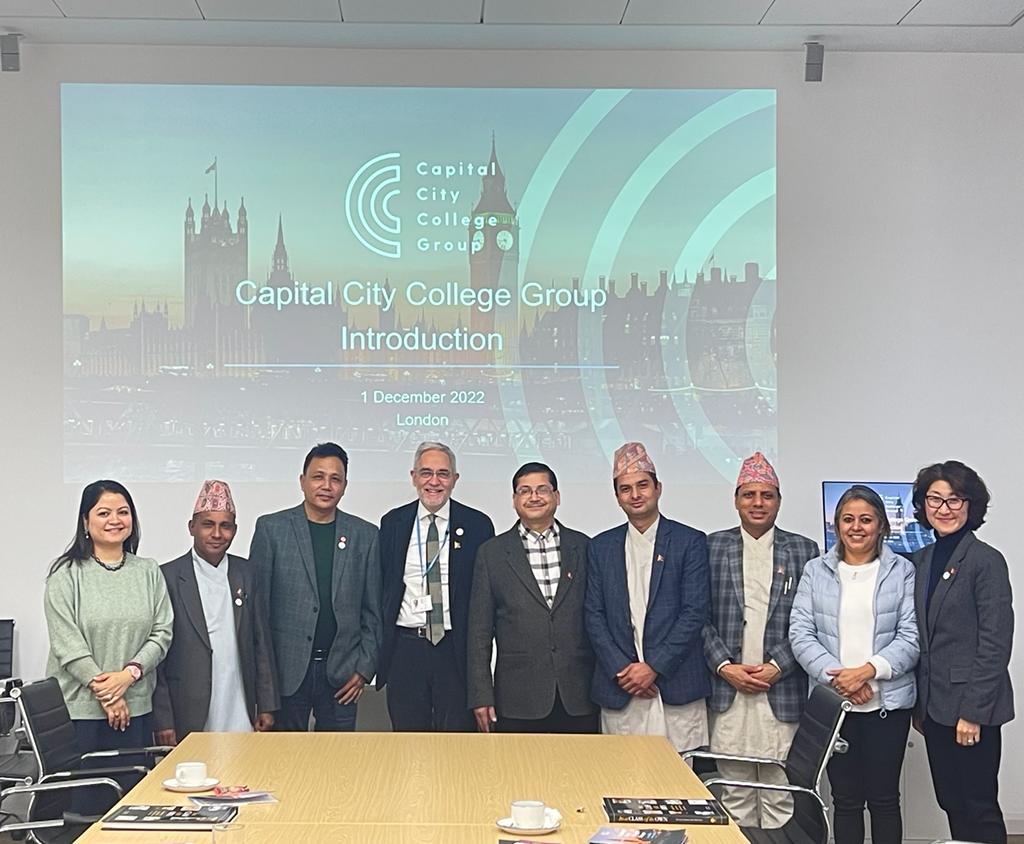
Followed by the UK skills seminar, the Nepali delegates continued on their extended visit in London meeting stakeholders from the UK Skills system. Delegates were informed of leading innovations in TVET in the UK, main actors in the system, and how partnerships are strengthened to develop and implement England's skills agenda and supporting transitions, such as the fairly new T-level qualification and transition to green jobs.
Delegates reflected at the end of the seminar that their knowledge and understanding has increased in relation to the roles and responsibilities of UK Further Education Colleges and strengthened their work with employers to design and deliver a skills system.
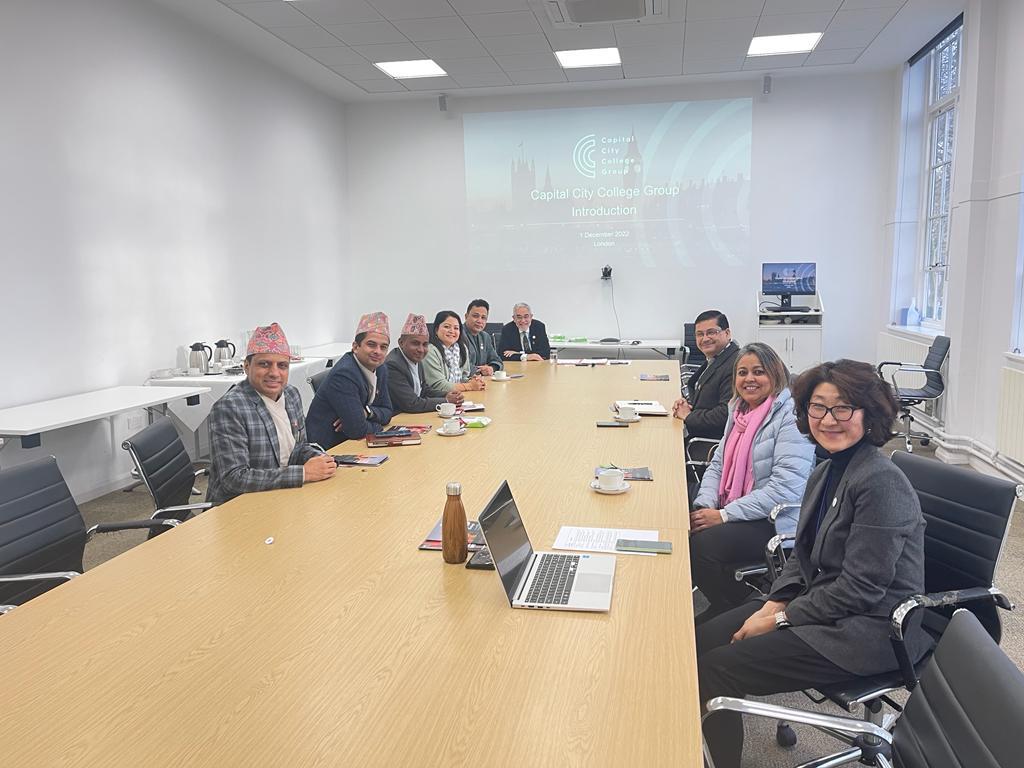
The meeting with the Associations of Colleges (AOC) where the delegates learnt more about the T - level, that, it is a brand new qualification for post 16 students designed to help step into a job in a chosen career, an apprentice or university.
A visit to University of Westminster Kingsway College (WKC), part of capital college group which is large UK government TVET further education college, enhanced delegate's understanding on the roles and responsibilities of UK Colleges. Delegates were taken on a tour of the facilities where they interacted with students and teachers and saw the well-equipped facilities thereby reemphasising the importance of partnership and collaboration for local skills development.
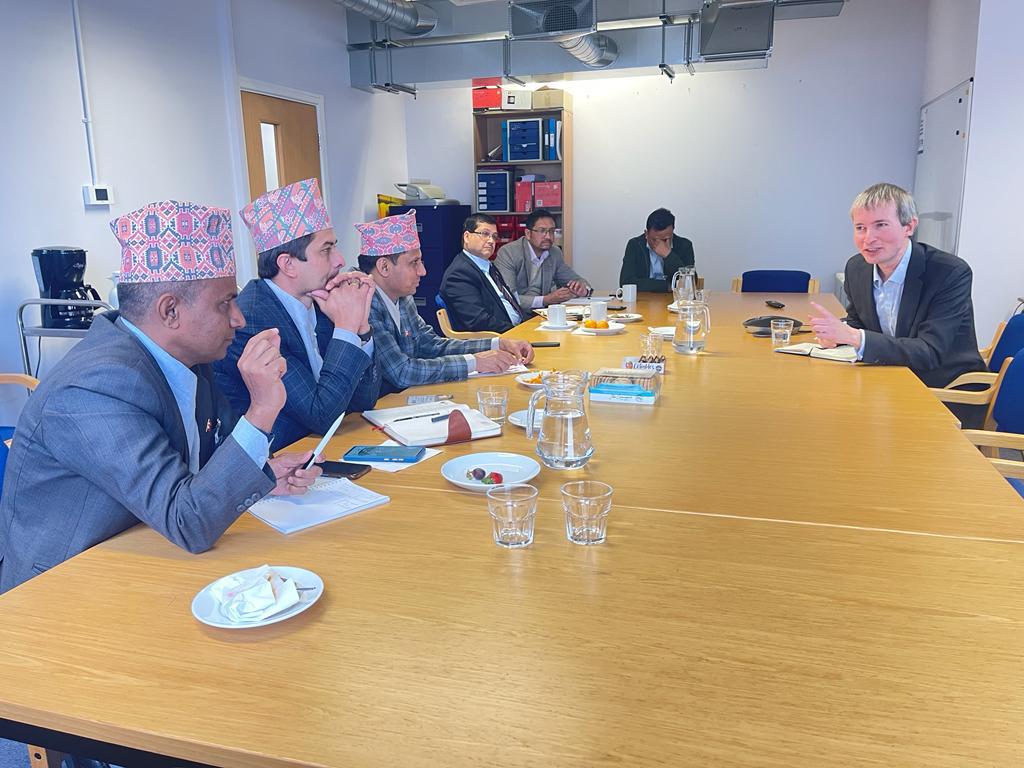
Delegates also heard from Gatsby Foundation on how careers advice and guidance is a key component in school, and how higher school authorities and employers are involved in providing these guidance. Delegates reflected, its similar to Nepali context but of course it needs to be continuously progressed. Career hub for counselling was another partnership that delegates found interesting in UK Skills system.
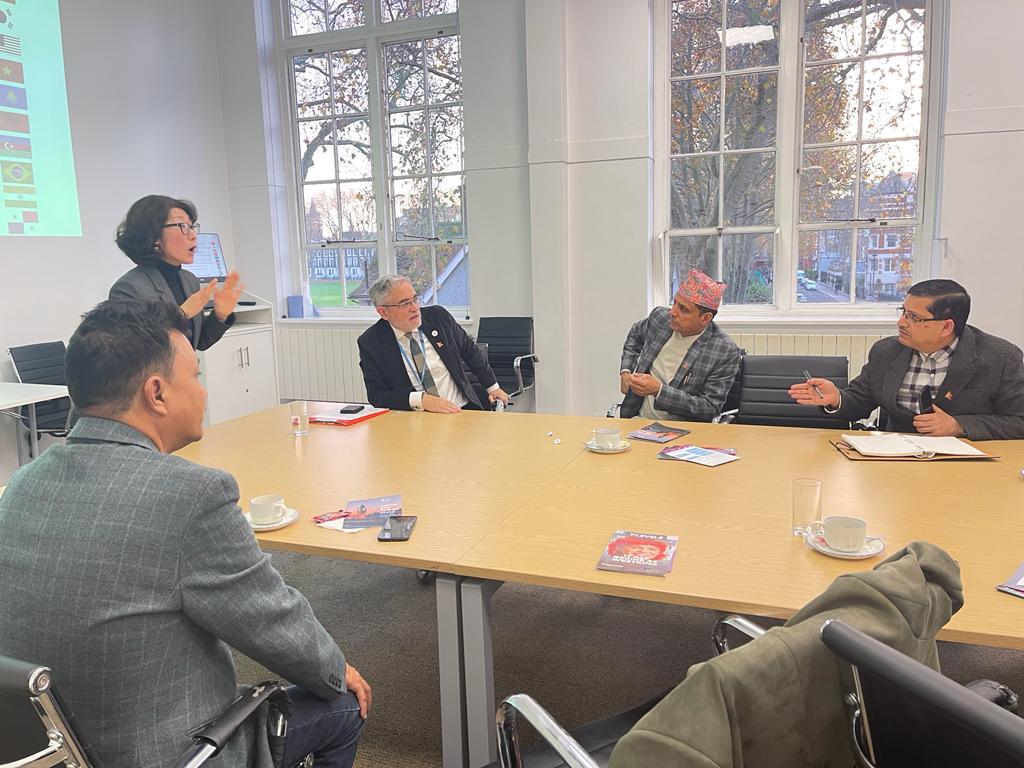
Final meeting at the learning and work unit, delegates discussed and heard of various UK policies focusing on employment and skills, such as the levy system. Presenter also highlighted some of the challenges such as, there is large skill gaps and unemployment despite the various policies and collaboration, especially brought by increasing living cost and inflation.
Overall, delegates stated that all these meetings were useful in building further knowledge and understanding about UK's role and work in skills development.
